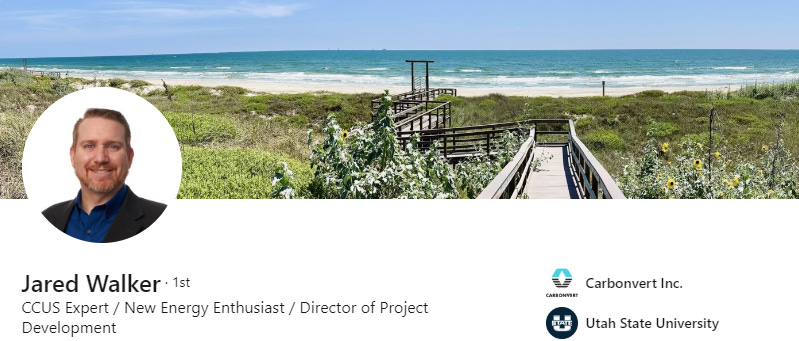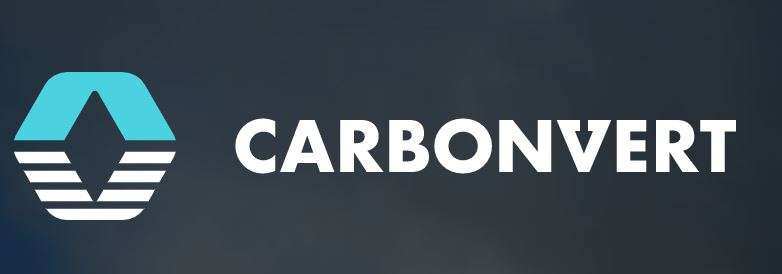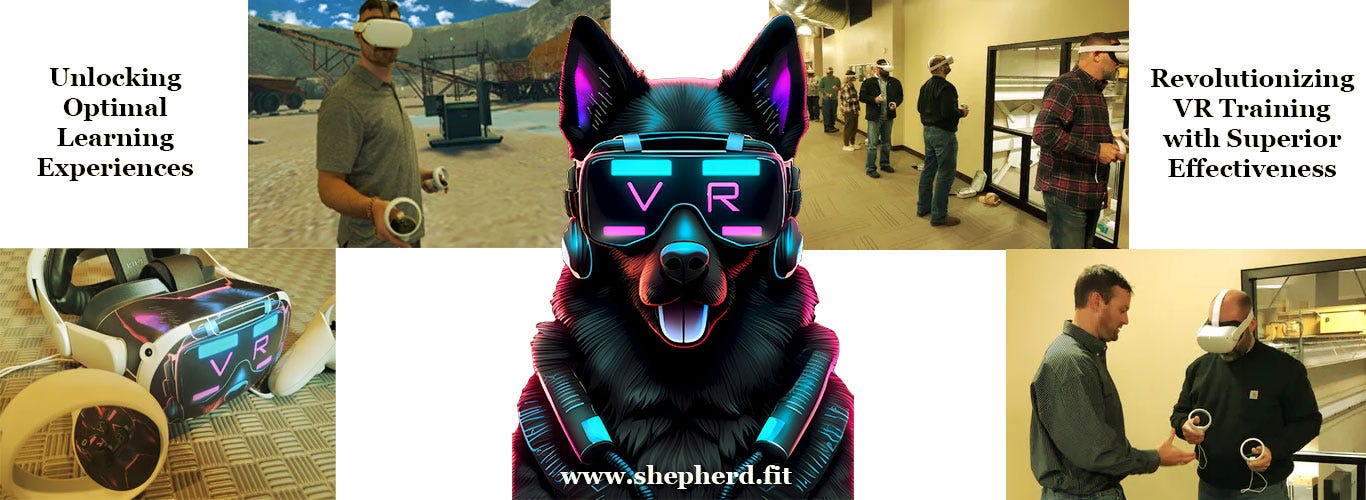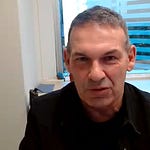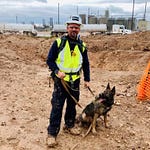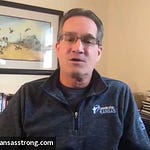Jared Walker joined The Carbon Conversation to discuss carbon storage and management. Walker is the Director of Project Development for Carbonvert.
“I've been in the carbon world in some form or fashion for two decades now,” Walker said. “My first project at a very small pace was in 2003 in Australia. I was part of the Barrow Island LNG plant project there.”
Walker has 20+ years of experience in CCUS as well as in the oilfield, including the Barrow Island project in Australia. The Gorgon Joint Venture was with Chevron Australia, ExxonMobil, Shell, Tokyo Gas, Osaka Gas and Chubu Electric.
“It's an island off the coast of Australia where they have a LNG plant, and they are currently sequestering their CO2 from that LNG plant,” Walker said. “In the early stages, I was part of the characterization team who went out there and helped them drill their characterization well when I was with Schlumberger.”
Jared previously worked as director of carbon removal for Marquis Energy, as commercial project development manager at Battelle, and as project manager and service delivery manager with Schlumberger Carbon Services.
“So CO2 has been either coming out of the ground in oil and gas or has been separated off to be used to get more oil and gas out of the ground for decades, since the 70s, so the separation of CO2 from an LNG plant, from a natural gas stream, that's known. That's been done for a long time now,” Walker said. “Separating it from other sources, it depends on the source.”
Walker continued citing different forms of carbon emitters and the technology involved with each.
“So things like you're talking about, ethanol and ammonia, they give off a pure stream of CO2. That's easy,” Walker said. “You just grab it, pull the water out of it, and it's ready to go on the ground. You can compress it up to supercritical.”
He then added come carbon context with his previous project with Marquis Energy’s ethanol plant.
“So that project at Marquis Energy, they are doing fully on-site,” Walker said. “They own a lot of acreage, so they own the pore space where they're going to store the CO2. The CO2 comes off in a very pure form off of their fermenters that make the ethanol from corn. That was pretty easy, we just grabbed the CO2 off the ethanol process and compress it.”
According to Walker the geography is one of the main ingredients to modern day CCUS.
“So there are areas in the country where you don't have the correct geology,” Walker said. “You don't have the right rocks to store CO2 in. You're just sitting on top of granite and there's no way to store CO2 there, and so you have to move the CO2 from the sources to where you can store it in the ground safely and securely. And that's what they're trying to do with those (carbon pipeline) projects.”
Walker has operations and business management experience in multiple industrial and research sectors related to CO2 and oil and gas. His background includes experience in the full lifecycle of CCUS projects, from initial study to close out, and experience in international exploration, geosciences, well design, drilling, monitoring, permitting, outreach, capture, and transport.
Walker earned his degree in Civil and Environmental Engineering from Utah State University.
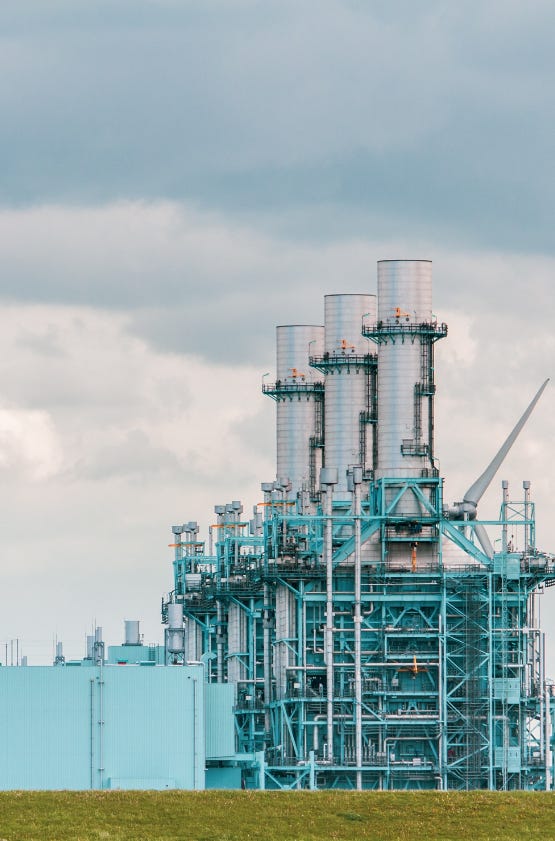
The concept of CCS dates back to the early 20th century when researchers first recognized the link between CO2 emissions and global warming. In the 1970s, scientists began exploring ways to capture and store CO2 underground to prevent its release into the atmosphere.
The first successful CCS project, known as Sleipner, was launched in 1996 by Norwegian energy company Equinor (formerly Statoil). Located in the North Sea, the Sleipner project involved capturing CO2 from natural gas processing and injecting it into a deep saline aquifer beneath the seabed.
The early 2000s saw significant advancements in CCS technology and deployment. In 2000, the Weyburn-Midale CO2 Project in Saskatchewan, Canada, became one of the largest CCS projects in the world, demonstrating the feasibility of storing CO2 in depleted oil fields.
In 2008, the Gorgon Project in Australia, which Walker worked on, marked another milestone, showcasing the integration of CCS with natural gas production on a massive scale.
Throughout the 2010s, CCS continued to gain momentum as governments, industries, and environmental organizations recognized its potential to reduce emissions. In 2015, the Paris Agreement highlighted the importance of CCS in achieving climate targets, spurring further investment and research in the field.
Meanwhile, companies like Shell, ExxonMobil, and Chevron intensified their efforts to develop CCS technologies and integrate them into their operations.
Numerous CCS projects are currently underway across the globe, showcasing a wide range of technologies and applications. One notable project is the Petra Nova facility in Texas, USA, which became operational in 2017. Petra Nova is a joint venture between NRG Energy and JX Nippon Oil & Gas Exploration, and it captures CO2 emissions from a coal-fired power plant and stores them in underground formations.
In Canada, the Boundary Dam CCS project in Saskatchewan has garnered attention for its successful integration of CCS with a coal-fired power plant. The project, operated by SaskPower, has been operational since 2014 and has demonstrated the feasibility of retrofitting existing power plants with CCS technology to reduce emissions.
In Europe, the Longship project in Norway represents a significant investment in CCS infrastructure. Led by Equinor, the project aims to develop carbon capture and storage facilities along the Norwegian coast, including the aforementioned Northern Lights project for CO2 storage in the North Sea.
Everyday your story is being told by someone. Who is telling your story? Who are you telling your story to?
Email your sustainable story ideas, professional press releases or petro-powered podcast submissions to thecontentcreationstudios(AT)gmail(DOT)com.
#thecrudelife promotes a culture of inclusion and respect through interviews, content creation, live events and partnerships that educate, enrich, and empower people to create a positive social environment for all, regardless of age, race, religion, sexual orientation, or physical or intellectual ability.
CLICK HERE FOR SPECIAL PARAMOUNT + DISCOUNT LINK
Dexter®: Original Sin (Dec. 13)
The prequel series Dexter®: Original Sin stars Patrick Gibson as America’s favorite serial killer. Set in 1991 Miami, the show follows Dexter as he transitions from student to avenging murderer. When he can no longer ignore his bloodthirsty urges, Dexter realizes he must learn to channel his inner darkness. Guided by his father, Harry (Christian Slater), he adopts a code designed to help him find and kill those who deserve to be eliminated from society. Dexter must do this without winding up on law enforcement’s radar – a particular challenge once he begins a forensics internship at the Miami Metro Police Department.
In addition to Gibson and Slater, this 10-episode drama stars Molly Brown, James Martinez, Christina Milian, Alex Shimizu, Reno Wilson, with Patrick Dempsey, and special guest star Sarah Michelle Gellar.
And, yes, Dexter® fans: Michael C. Hall, who earned multiple Emmy® nominations as the original Dexter Morgan in Dexter® and Dexter®: New Blood, is back for Dexter®: Original Sin. He’ll provide the voice of Young Dexter's inner monologue.
Dexter®: Original Sin premieres Friday, Dec. 13, on Paramount+ with the Paramount+ with SHOWTIME® plan only. New episodes will drop weekly.
No matter what your mood, you'll find something to stream on Paramount+. Watch Now!





